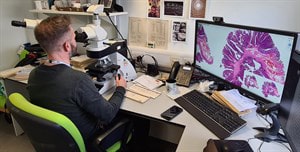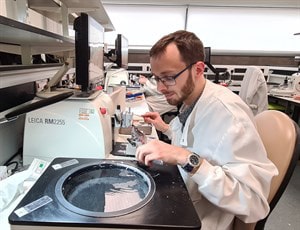Digital Pathology

NHS patients throughout the whole of the West Midlands are to benefit from a region-wide digital pathology programme, designed to help reduce cancer backlogs, transform services, and improve the speed and accuracy of cancer diagnosis.
The West Midlands Cancer Alliance was successful with a Transformation funding bid for 2018/19 and is one of the largest digital pathology programmes anywhere in Europe, the West Midlands Cancer Alliance initiative covers a population of 5.8 million people across four NHS pathology networks and 17 NHS trusts.

The successful bid included the development of a West Midlands integrated pathology network where four tertiary centres would form a regional networked digitalised diagnostic service. Black Country Pathology Services is one of the 4 HUB sites for the adoption of digital pathology technology which will drive fundamental changes in how the region integrates and increase the speed with which diagnostic tests are processed, assessed, and reported against common datasets and protocols, while creating a drive for re-alignment of workforce.
Delivered in partnership with medical imaging technology provider Sectra, the programme will help to tackle cancer backlogs by providing pathologists with the digital tools needed to better collaborate, share expertise and capacity, prioritise urgent cases and manage growing demand across the entire region.

The work signals the biggest change for the region’s pathology services in more than a century. Technical go-live is now complete, meaning pathologists will start the transition from using microscopes and glass slides, to having instant access to high resolution digital images of tissues for patients across a large geographical area.
Whole slide imaging is a technology that has the potential to transform the practice of pathology. In diagnostic digital pathology, digital images of glass slides are acquired in a scanner using high quality microscope lenses. These whole slide images are then stored and transmitted and can be viewed and annotated by consultant pathologists on computer display screens.
The digital slides are readily available via any networked PC and have the potential for transmission and sharing within a local, regional, national or international network, as well as being made available for remote and out of hours reporting.


